In 1818, before Alabama became a state, Anne Newport Royall (June 11, 1769 – October 1, 1854) was a traveler in Alabama. After her husband died, she was left penniless and she toured Alabama for four years as one of the first newspaperwomen in America. She wrote letters to her friends about Alabama and the letters were published as a book entitled Letters from Alabama in 1830.
On January 18th, 1818, Anne was in Melton’s Bluff, Alabama (now in Lawrence County, Alabama)where she met General Andrew Jackson whom she describes in this transcribed letter as well as a story about a woman she met who immigrated to Kentucky. General Jackson saved the woman’s life as well as her six children when she traveled through the wilderness alone. The letter has been transcribed exactly as published. (Including the misspellings)
Melton’s Bluff, January 18th, 1818.
Dear Matt,
Good news awaits you: read on! Having collected a few books, I was devouring Phillips’ Speeches (first sight of the book) in a comer, when a loud cry, “General Jackson, General Jackson comes!” and, running to my window, I saw him walking slowly up the hill, between two gentlemen, his aids. He was dressed in a blue frock coat, with epaulettes, a common hat with a black cockade, and a sword by his side. He is very tall and slender. He walked on by our door to Major Wyatt’s, his companion in arms, where he put up for the night, though he called on us that evening and the next morning.
 Andrew Jackson
Andrew Jackson
Not handsome, but strikingly bold
His person is finely shaped, and his features not handsome, but strikingly bold and determined. He is very easy and affable in his manners, and loves a jest. He told one of our party, he was “one of the blue hen’s chickens.” He appears to be about 50 years of age. There is a great deal of dignity about him. He related many hardships endured by his men, in the army, but never breathed a word of his own. His language is pure and fluent, and he has the appearance of having kept the best company.
You will recollect he was ordered by the government against the Seminole Indians. His army is on its march considerably ahead of him, having crossed at Ditto’s Landing, up the river, while he came round by this place to see his plantation an slaves.
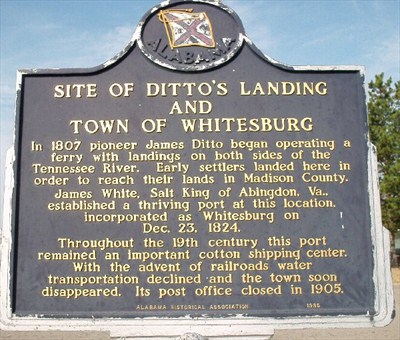
Hero of the south
The hero of the south, as he is called, left us this morning, at 10 o’clock, and our best wishes went with him. Upon seeing him, I called to mind the night I was roused from my sleep in Charlestown, about midnight, by William Quarrier, who knocked at my door and proclaimed aloud, ” General Jackson has defeated the British at New Orleans; get up, we are going to illuminate.” This was the night of fire-works and rejoicing upon the news of the victory, which you no doubt well remember. Many other anecdotes, particularly of his humanity to the distressed, occured to my mind.
Her story was better than any novel
Upon my return once from Ohio, I put up at a Mr. Jones’s, on Kentucky river. In the course of the conversation, I observed,” that a new county had been established in Ohio, and was called Jackson; and not satisfied with this mark of respect, they had called the seat of justice Jackson.” Mrs. Jones observed they could not have him too much; and it gave her great pleasure to hear of his hapiness and success; that he had been the means once of saving herself and her children from perishing in the wilderness. Mis. Jones, was the daughter of Captain Arbuckle, of Greenbrier City, Va. with whom you must be acquainted, though you may not be with the history of his daughter, as you are too young.—Her history contains a most surprising train of incidents, and superior to any novel. The story is this: Mr. Arbuckle had several handsome and sensible daughters. One of these was addressed by a Mr. Jones, and a mutual and deep rooted affection grew up between them: but Captain A. opposed their union, and forbid Jones his house; and finally through persuasion and force compelled his daughter to marry the son of Captain Robertson, a near neighbour of mine. Upon this, Jones abandoned the country, and I never heard of him from that day till the night of which I am now speaking. As soon as Robertson married the girl, he removed with her to Natchez, and I heard no more of them. I did see a publication in the newspapers, of a female travelling through the Indian nation, without protection, and that she, and six children, entered the state of Kentucky, nearly famished. Mrs. Jones was the woman!
Forced to marry Mr. Robertson
Her own narrative follows: “I was forced to marry Mr. Robertson and be miserable, or marry Mr. Jones, and render my father miserable, I preferred the former. All places being alike to me, after this sacrifice, I accompanied my husband to Natchez. We had’ received a handsome beginning from both our fathers, and were, for some time prosperous. But my husband, at length, fell in with bad company, and took to gambling and drinking, and spent the whole of his property.—Meantime we had seven children, which I partly maintained by my own labour. Finally, my husband took sick, and after lingering some time, died, and every thing I had was seized and sold by his creditors, with the exception of four horses, which I concealed, with a view of conveying my children and myself to my father in Virginia.
Departed one night for Virginia
I hired a man to go with me, and departed early one night, and never stopped till I got over the boundary line between the white people and the Indians. I had but 8 dollars and a bushel of meal for myself and children; but I was so anxious to get out of the reach of the white people, whom I expected would pursue me, that I travelled without ceasing, or rest, till the second day about 10 o’clock, when I turned out my horses to feed on the pea vine, and began to prepare bread for my children. Several of them being sick when I left Natchez, were stretched upon the ground, while I was preparing food, when, behold, three white men, whom I knew, appeared in sight, having pursued me.
The men surrounded the horses
They rode towards the horses, as if to surround and take them by force, when I flew between them and the horses, and told them they should not lay hands on them. I acknowledged I owed money in Natchez, which I honestly intended to pay when I reached my fathers. You have deprived me of all but the horses, and without them I cannot reach my fathers. I am out of your jurisdiction. I am on Indian ground, and if you levy your process on my property, you do it at your peril. You know the penalty, and so do I, and I will prosecute you at every hazard. I had been particular enough to learn by certain signs on the line, and I knew I was out of their power. They endeavored to frighten me out of the horses, but finding it vain they returned.
The man disappeared during the night
“I pursued my journey all that night, and next day, until evening, when coming to a deep hollow, over which there was a bridge, I drove the horses over, and after taking a slight supper, I lay down on the bridge, with a view of guarding the horses. The man who was with me, an old silly sort of a man, had disappeared sometime before I lay down. I lay awake, suspecting some treachery. The moon shone quite bright. The old man had doubtless betrayed me to the same men whom, as I expected, pursued me. When I missed the man I concluded I was undone, and gave way to despair; for, though I saw no possibility of the horses crossing the gully, except by the bridge, I was apprehensive some place was known to my guide, or to the men. As I lay watching, with an aching heart, about midnight I perceived the horses moving slowly towards the bridge, and the same men, with the traitor, pursuing them silently.
I jumped up and frightened them back
When the horses drew near the bridge, I jumped up and frightened them back, and the men disappeared. They, doubtless, expected I was asleep, and never dreamed of my securing the bridge. I never saw my men afterwards. I continued my journey, now and then buying a scanty supply of provisions for ourselves and horses, from the Indians. These were the Choctaws, and were very friendly. But it was at a season of the year when provisions were scarce.
“I travelled but slow, as my children were all sick, except one.—One of the children was so ill that I had to carry it in my lap; and though I expected to lose some of them, I strove to get to the white settlements if possible.
He gave me forty dollars
The ninth day, as I was riding slow along, met a gentleman and his servant. He stopped and spoke very kindly to me, and inquired very particularly into the cause of my travelling in the wilderness; and asked me how much money I had? I informed him I had but two dollars, and at the same time repeating the cause of my journey. He approved my undertaking, and pulling out his purse, gave me forty dollars! H« told me to keep a good heart, and I would surmount my difficulties. Said he was sorry he was going the opppsite way. He spoke kind to all the children, and went on. It was General Jackson!
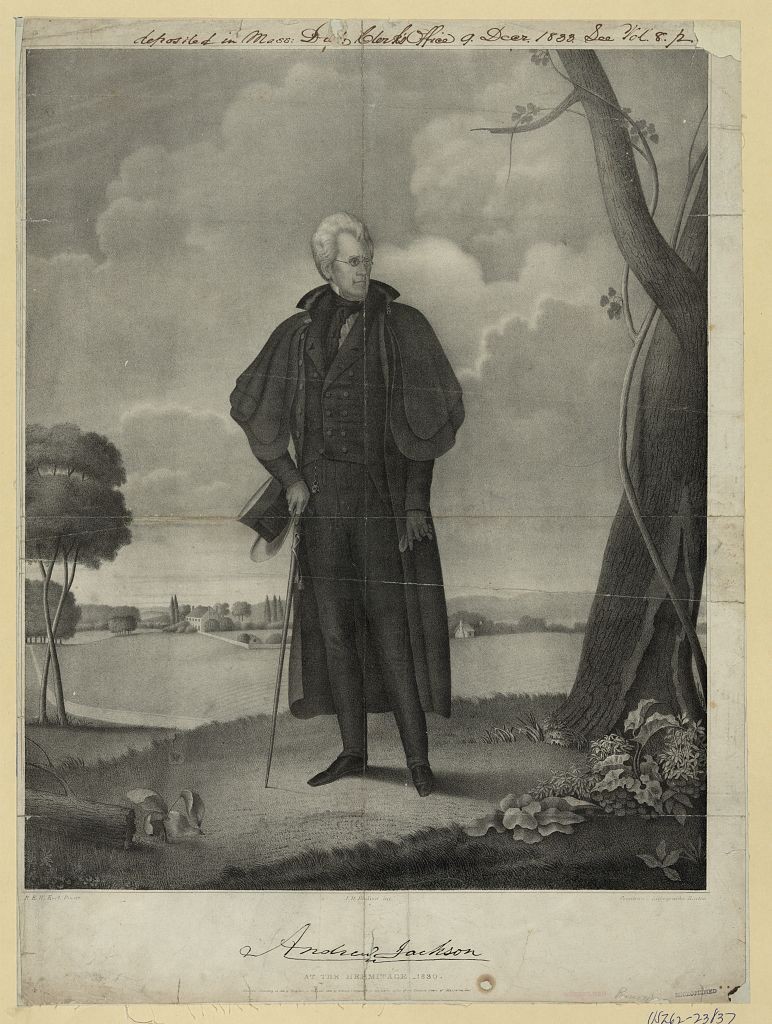 Andrew Jackson 1833 (Library of Congress)
Andrew Jackson 1833 (Library of Congress)
I administered to him
“The day after I left him, as I stopped at an Indian house, I discovered a gentleman, who appeard to be sick. He had been resting awhile, and finding I was going the same way, he had his horse prepared, and went on with me. He was very feeble, and was followed by a mule, which was heavily laden with specie. He had been taken sick on the road. We travelled together, very slow, till the third day, when he informed me he could go no further. As I had some knowledge of medicine, and not wishing to travel without his company, I placed him in an Indian cabin, and having medicine with me, left by the physicians when my husband died, I administered it to him—in three days, during which I constantly attended him, he found himself well enough to venture on; and my children, too, being better, we proceeded with greater celerity than before. We did not make as much progress as we could have wished, owing to the want of grain for our horses. He was well armed, but was, nevertheless, timorous—nor was I less so; and the following will prove that our fears were not groundless:
Their design was to rob the gentleman
As we were lying down one night, all asleep but myself, (I never slept at night,) my eyes being fixed upon the road, watching both ways, I saw a person walking up the road. I turned to the tent where the gentleman slept, (I always stretched a blanket over him at night,) and wakened him; but as I crawled to him, I saw two more men in the other end of the road, also, walking towards us. Their coming in this manner, evidently showed their design, which was to rob the gentleman. He seized a pistol, and called out to the men to stand—upon this, all three ran, and he fired after them. They never appeared after this, although we watched for them the whole of that night.
He bought my horses
“In the course of our conversations, I mentioned the money given me by General Jackson; and as we were now drawing near Kentucky, and were soon to part, he said he must give me something before we separated. Taking a fancy to one of my horses, he inquired of me if I would dispose of him— that if I would he would give me the full value, and I could send him the horse when I arrived home. I agreed to this, and he paid me the money, and we parted next morning.
Four months later we arrived in Greenbrier
“I struggled with sickness and hardships for the sake of my children, until I arrived in Kentucky, when, having less cause to exert my fortitude, I sunk upon a sick bed, where I lay, until writing to my father, he sent for me, and four months after leaving Natchez, we arrived, all safe, in Greenbrier!”
Yours, &c.
SOURCE:
Letters from Alabama, 1817-1822: Biographical introd. and notes by Lucille Griffith


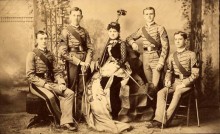
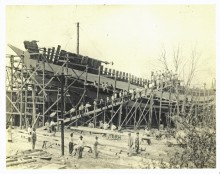
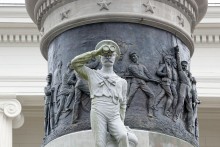
Thats pretty cool
Carolyn Sue Ingle Cole
Being in Huntsville, I’ll never think of Ditto Landing and Whitesburg Drive the same way again with that history lesson.
Sarah Morrison Stephens. Saw this and immediately thought of you.
LOVE LOVE LOVE. Shared it to the Elmore/Autauga News FB page.
So interesting !
[…] of Mrs. Jones’ story is so interesting that I must finish it. It amounts to the following:—When she arrived at home, […]